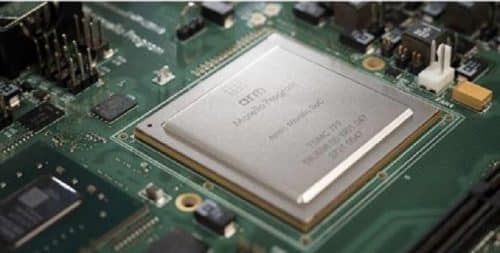ARM makes available its Morello hardware with an enhanced security architecture developed to secure next-generation computing devices.

In its ongoing efforts to amplify security, Arm has announced the availability of its Morello processor, System-on-Chip (SoC) and development board. This hardware uses an architecture called CHERI (Capability Hardware Enhanced RISC Instructions) developed with researchers at the University of Cambridge. The aim of the new CHERI architecture is to particularly mitigate memory safety breaches– software defects that are exploited by hackers to take control of a device or system – at a hardware level.
Arm Morello Program
ARM notes that device security is a major challenge with major news concerning hacks, breaches, and digital theft of some kind or other. Morello is a research program with an aim to radically change the way processors are designed and programmed in the future to improve built-in security. Morello focuses on new ways of designing CPU architecture that can make processors more robust and deter certain key security breaches.
CHERI architecture and Morello Prototype boards
Arm has been collaborating with the University of Cambridge for several years on its CHERI architecture, which defines hardware capabilities that would provide a fundamentally more secure building block for software. As a major part of this comprehensive research project, Arm has designed and built a system on a chip (SoC) and demonstrator board which contains the first example of the Morello prototype architecture.
The Morello prototype boards are now being released and are ready for software developers and security specialists to start using the Morello architecture to demonstrate the enhanced security that can be achieved with hardware capabilities.
The limited-edition boards feature the Morello prototype architecture embedded into an Armv8.2-A processor that is an adaptation of the Arm Neoverse N1 processor chip. The boards are being distributed to major stakeholders such as Google and Microsoft as well as to interested partners across the industry and academia via the UKRI Digital Security by Design (DSbD) initiative. These partners represent a broad ecosystem of specialists to test the hypothesis of Morello and discover if this is a viable security architecture that could benefit both businesses and consumers in the future.
According to the company, the new prototype boards will open up many new opportunities for researchers to evaluate and test security benefits in real-world scenarios.
Arm is also working with established partners and software ecosystems to use these prototype systems to develop enhanced security solutions that are expected to impact a vast range of applications.
On the new development, Ben Laurie, Principal Engineer, Security from Google Research commented, “Computers are incredibly useful but the price we pay for that utility is more and more exposure to security and privacy issues. CHERI can allow for better, more cost-effective protection. without reduced performance and Arm’s Morello prototype can help mitigate security issues showing the way to a better future for all computer users – in other words, pretty much everyone.”
“Memory safety exploits are one of the longest standing and most challenging problems in all of software security,” said David Weston, Director of Enterprise and OS Security, Microsoft. “Using core silicon architecture to eliminate whole classes of security issues with minimal performance impact has the opportunity to be transformative with massive positive impact, I am incredibly excited about the Morello project.”









